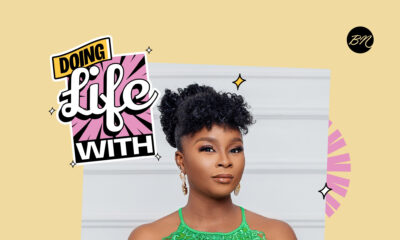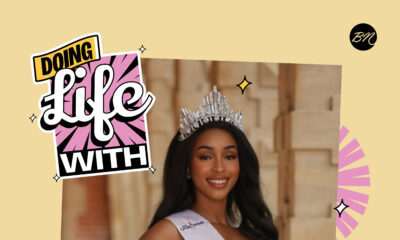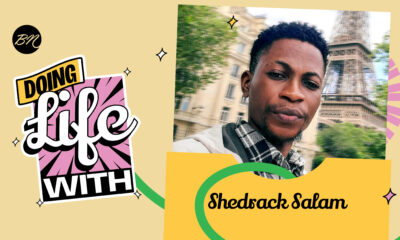Features
Krystal Chindori-Chininga on Returning to Zimbabwe After 8 Years in the US in Today’s “Doing Life With…”
I felt compelled to challenge this narrative and share the positive developments and successes that are often overlooked.
Doing Life With… is a BellaNaija Features series that showcases how people live, work, travel, care for their families and… everything in between. We are documenting the lives of all people and ensuring everyone is well-represented at BN.
Did you miss last week’s conversation with Solape Akinpelu? You can catch up here.
Today, we’re doing life with Krystal Zvisineyi Chindori-Chininga, a remarkable change-maker and advocate for African development. Krystal moved back to Zimbabwe from the US to explore the opportunities on the continent. Enjoy the conversation!
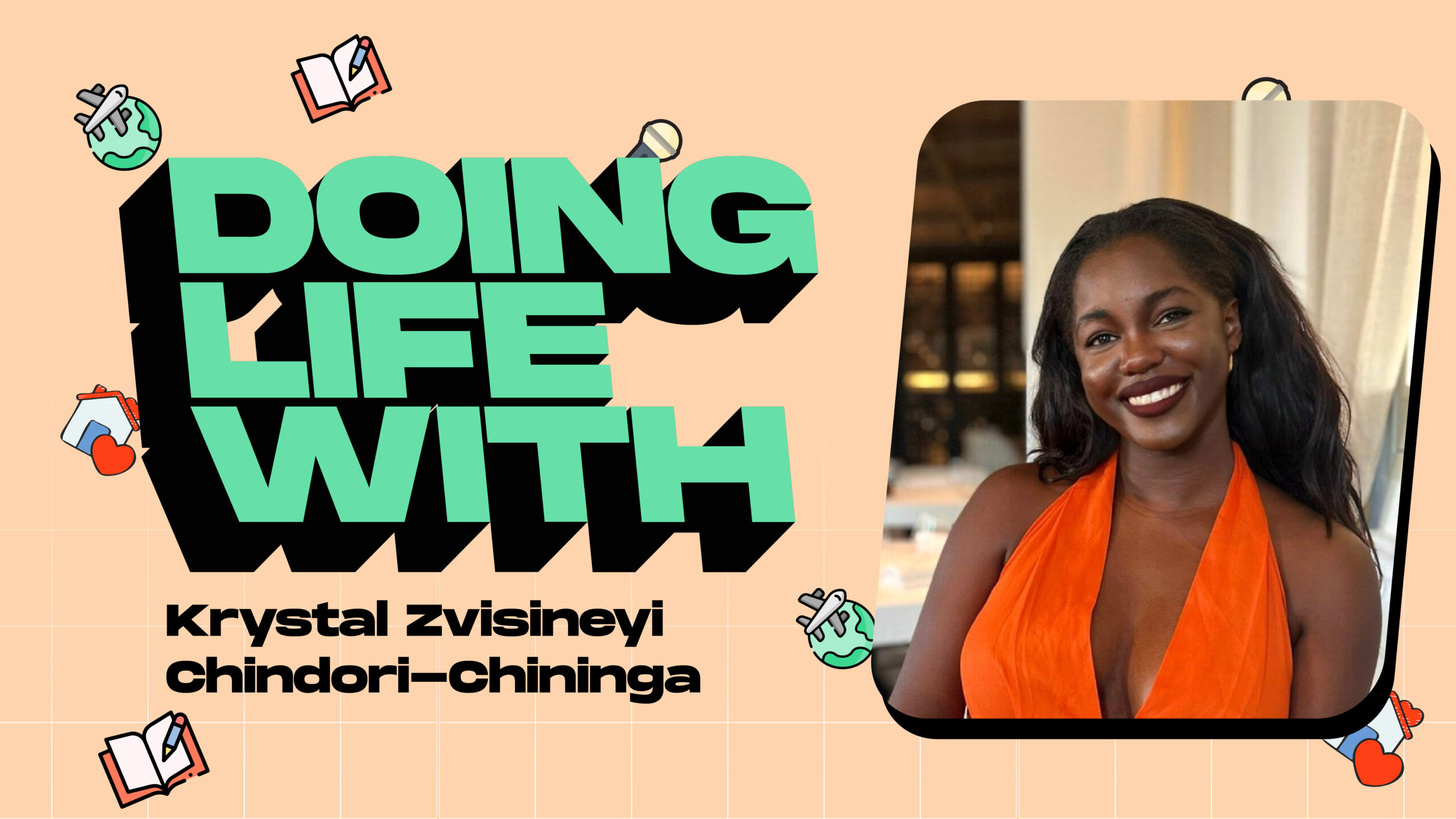
Hey Krystal, how are you feeling right now?
I feel good. It’s been a year of challenges but that has engaged a sort of tenacity and drive in me that is very rewarding. So I feel good, tired and excited.
Give us a glimpse into your background and any part of your childhood that influenced who you are today
I was born and raised in Harare, Zimbabwe and went to an all-girl catholic school for my entire pre-university education. I like to mention this because I believe being in an all-girl environment where the smartest person, most athletic person, most influential person, and most mathematically gifted person I knew was a girl, made me never question the capabilities of women. To add to that, my parents’ stories, my mother a black American from rural Tennessee who moved to Zimbabwe for love and rose to be a real estate mogul, and my father a Zimbabwean boy from the village who became a powerful politician, really imbibed in me the importance of being a strong go-getting individual that reaches for the moon. I went to Cornell University in New York to obtain my BSc in International Agricultural Economics and Rural Development, and my Master’s in Global Development and International Business, specialising in African Economics.

You use your page for African advocacy. Why did you decide to create content around African values?
I did not expect to grow to 36k. And I’m so grateful for my super-engaged followers who encouraged me to make content and kept me motivated with their engagement. Since 2018, I have been heavily involved in African development and international NGO work. This has involved collaborating with the UN, World Bank, and various African governments. Throughout my undergraduate and graduate studies, I focused on African culture and economics. I wrote all my papers on an African country or topic, even when it wasn’t required. I was dedicated to using my education to better understand my home continent. I made an effort to use sources from the continent for my papers and engaged with African academics writing on African philosophy.
Through my international development work, I gained deep insights into the social, economic, political, and cultural diversity of Africa. I realised that the negative narrative surrounding Africa, especially in terms of social and economic development, was often false or too generalised. I felt compelled to challenge this narrative and share the positive developments and successes that are often overlooked. So, my content creation was a way to try to share some of those wins and positives, and add more nuance to our conversations. I wanted the people of our generation to be more motivated and informed about the continent.
Content creation is not my full-time job. I am actively involved in international development consulting, farming, philanthropy (I have a foundation that donates school fees to girls in rural areas and also supports creative arts initiatives), and entrepreneurship. Each day is filled with diverse activities and responsibilities.
View this post on Instagram
That’s impressive, Krystal
Thank you.
So you moved back to Zimbabwe after 8 years in the US. Tell us about this decision
Being in America propelled my career and income tremendously but it was very emotionally draining for me. When I left Zimbabwe, I always said I would come back. Being in the US was purely a stepping stone. I especially became drained with everything happening around racism in the US. I remember the last straw for me was a racially motivated shooting of 10 black people in a supermarket in Buffalo, New York, a city I used to go to all the time in university. After that incident, I just had so much anxiety about entering everyday spaces, and I remember sitting at home one day in Washington DC and deciding enough was enough. A few weeks later, my grandmother passed and I had to fly back to Zimbabwe from Cote d’Ivoire for the funeral and someone said to me, “Look around, these are your people.” I found that deeply heartwarming. A month later, I started moving back.
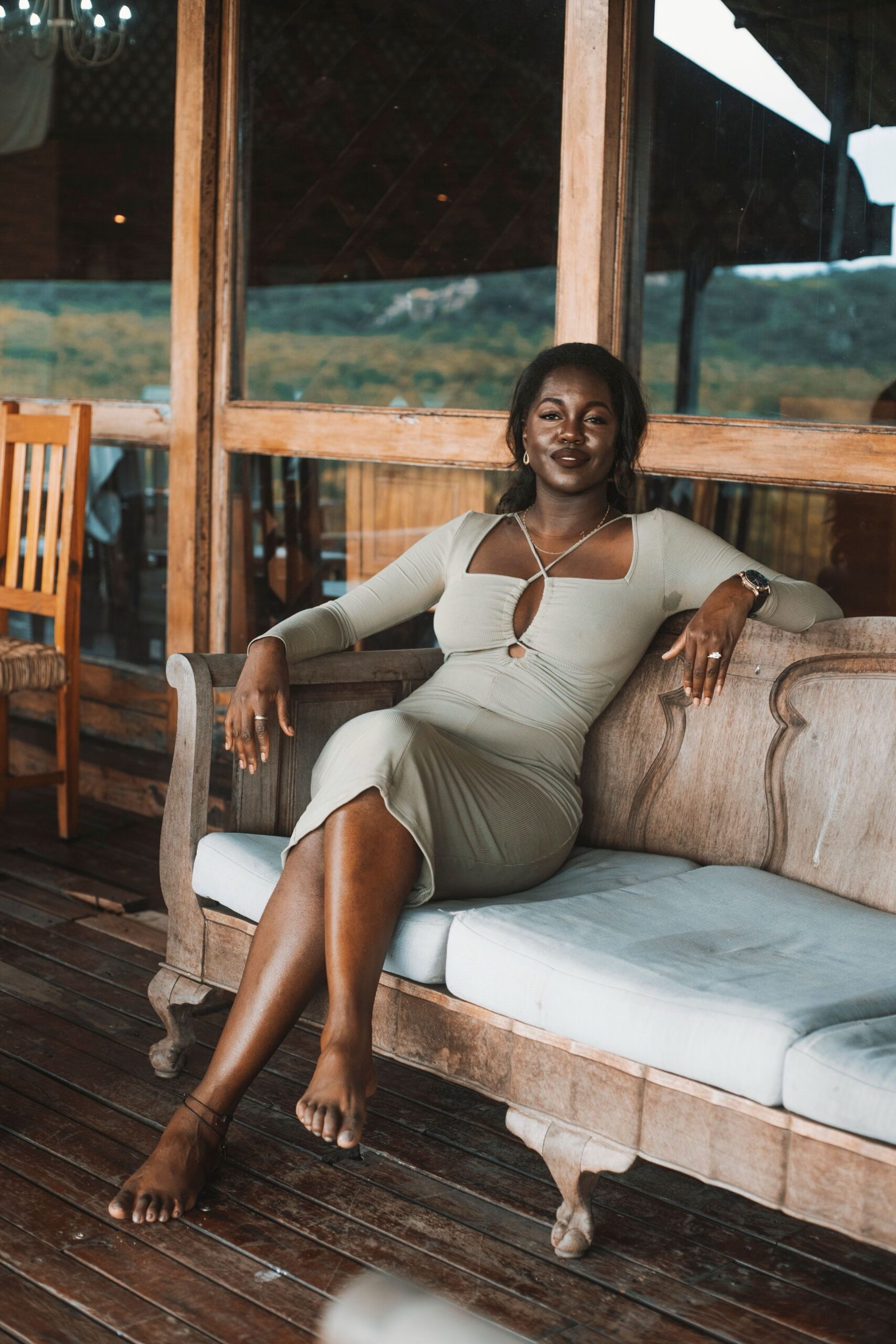
My time in America developed my business skills, for which I am grateful. It took my passion and turned it into an entrepreneurial drive, and I credit that transformation to my time in the US. Being back in Zimbabwe has brought me much happiness and peace, although the business environment is challenging. However, there are unique opportunities available in an African country for those who have the courage and persistence to pursue them seriously. This is one of the best times to be a business-minded individual on the continent.
You travel quite a lot, right? How many African countries now?
Yes, I do. I’ve been to 42 countries in total and about 20 African countries.
If you were to introduce a foreigner to Africa, what country would you invite them to and why?
It’s hard to choose, but probably Kenya or Tanzania. They are both great at showcasing the geographical and economic diversity of the continent. But it depends on the foreigner. If they are fun-loving, Accra, Ghana is at the top of my list. If they prefer a slower pace and beauty, Zimbabwe is a gem. I also like the idea of introducing people to places like Mauritius, Uganda, and Botswana, which aren’t typically on people’s radars but have a lot of beautiful places and people to showcase.
Apart from making content about Africa, where else can you be found?
It depends on the time of year but these days, I’m mostly at the farm. I manage a commercial farm here in Zimbabwe and we produce tobacco, wheat, maize, soya beans, citrus and cattle. I also periodically have to do consulting stints for anywhere between 2 weeks and 6 months all over the continent whenever I get called up to do so. Most recently my assignments have been in Accra, Ghana. I’m also a big arts and creative culture advocate.
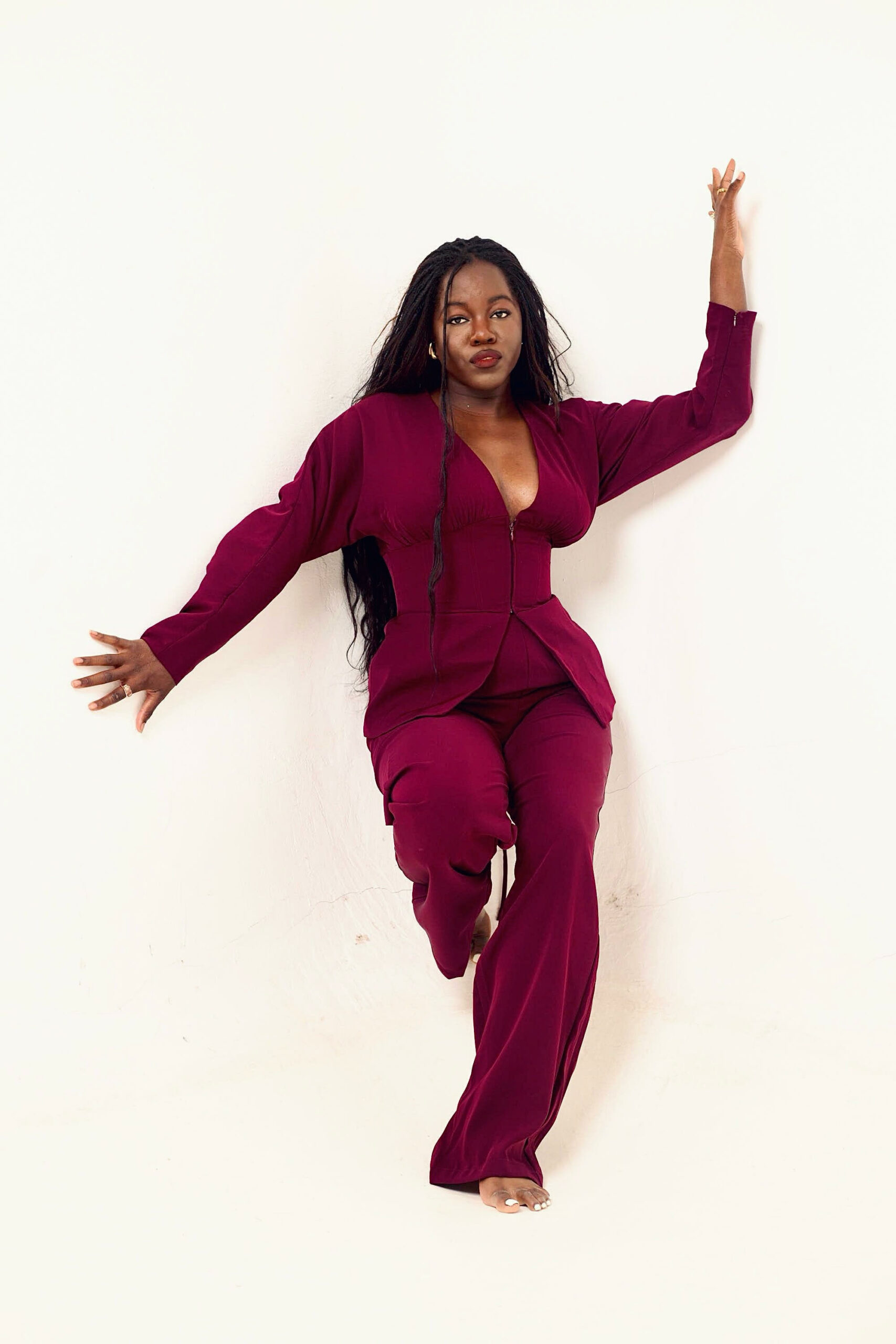
What’s a typical day in your life like? You know, what you’d do from when you wake up till you go back to sleep
I usually wake up to a call regarding the farm. 6:00 a.m; I get ready to leave the house.
6:30-8:30 a.m.: Drive to the farm, watching the sun rise over the mountains and the dam. 8:30 a.m.-10:30 a.m. (or sometimes 4:00 p.m.): Do the farm rounds. I start by going to the main house and getting tea, then I get reports from the commodity managers (the wheat manager, cattle manager, mechanic, security, and anyone else who requests to meet). Next, I do a stock check in the warehouses for all our supplies. Then, I check the progress of current crops in the active fields, visit the cattle, and finally pay salaries or make any necessary payments. If I have time, I manually count the cattle and also check the inactive fields. Sometimes, I also have to run errands to the local vet, local police, or local agro shop, and chat casually with workers.
10:30 a.m.-12:30 p.m.: Drive back to Harare, usually taking and making calls regarding the farm or other matters, such as my upcoming wedding. 1:00-5:00 p.m.: Have meetings with banks, lawyers, property development contacts, and government officials regarding my property development projects. Lunch is included during this time.
5:00-6:00 p.m.: Visit friends or have a social meeting to detox a bit. 5:00-10:00 p.m.: Complete any international development consulting tasks or do some writing. 10:00 p.m.-midnight: Eat and watch Peaky Blinders. Repeat.
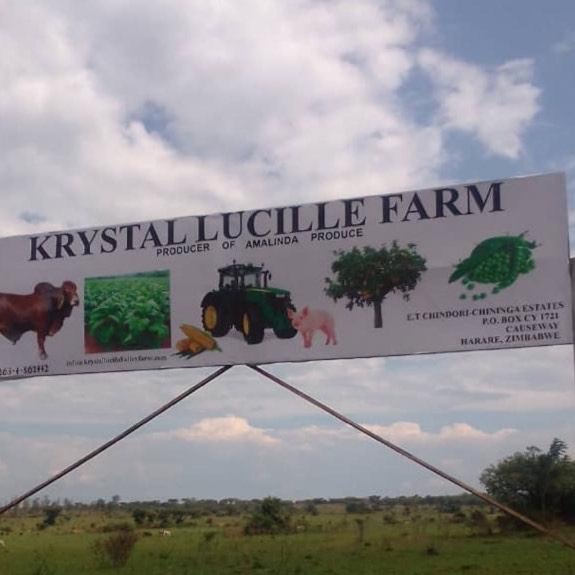
Share an unconventional thought about the world that you think people might find uncomfortable or not agree with
We are all fighting really hard to blend in and that’s a tragedy. Especially the older I get, I find that we are all so deeply afraid of being seen to be unlike what’s considered the “normal” man or woman, and I think it’s a real waste of our life and the ingenuity God put into making us different. It feels like most of my peers are being bullied by society into very boring moulds that offer them nothing except the security of not being ridiculed for being different.
What are the little things in your everyday life that bring you joy and make you feel alive?
Sunsets and sunrises for sure. I am blessed to live in a house on a hill where I get to witness glorious sunsets and sunrises. It’s a beautiful reminder to pause and be grateful for life. On top of that, I really enjoy dancing. Whether it’s at a party or a festival with friends, dancing together feels like we get to deeply experience each other’s joy for no reason just for the sake of it, it feels like celebrating life just because we exist and I absolutely love it. I think it’s also a big stress reliever for me.

Describe Krystal in three words
Joyful. Tenacious. Pensive.
What is one thing you can do when no one is watching?
I will completely unwind and lie down. It’s hard for me to relax in the presence of people truly.
If you’re locked in a room for one month and are allowed to do one thing, what would you do?
Write, sing or meditate. One of those 3.
_
Many thanks to Krystal Zvisineyi Chindori-Chininga for having this conversation with us and answering all our questions – and swiftly too, we must add.
Do you love this content, have any feedback for us or want to be a BellaNaija Features contributor? We’d love to read from you. Shoot us an email: [email protected]. Join us on Saturday for the next episode!


